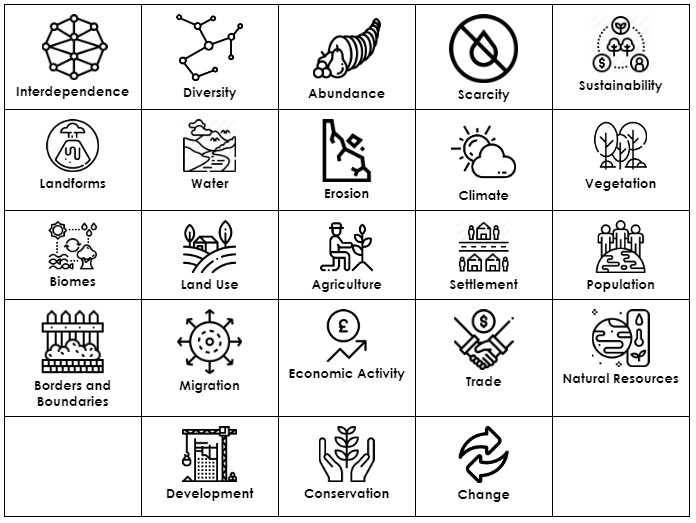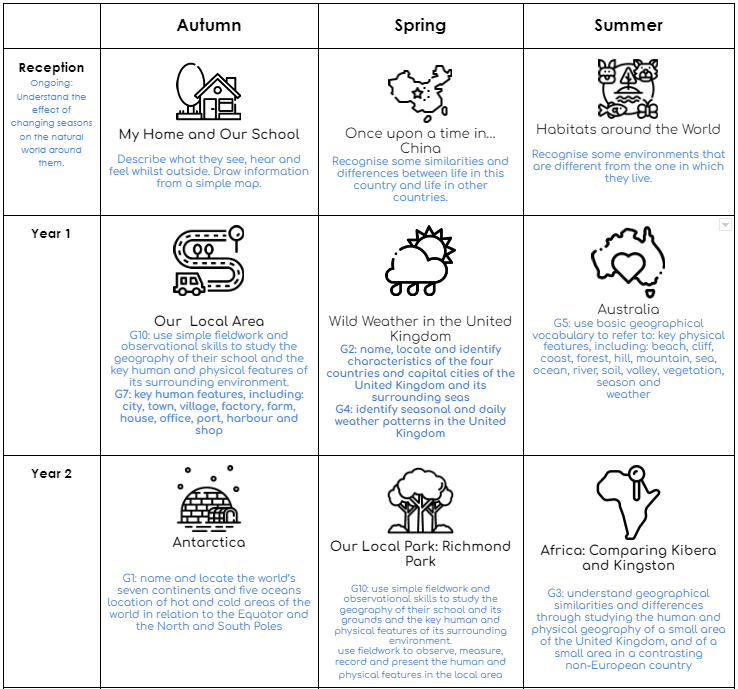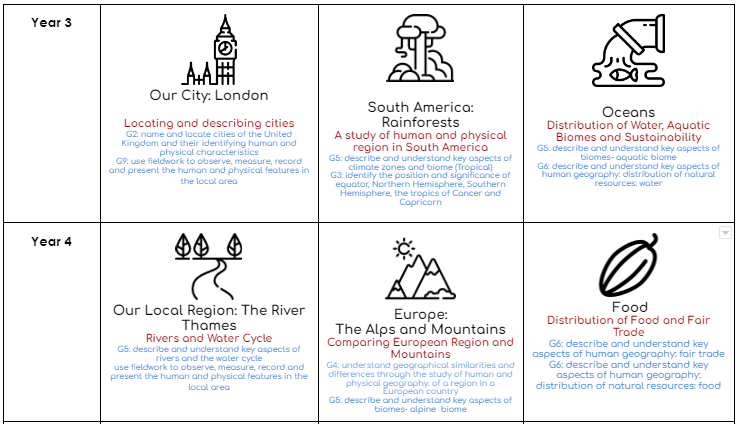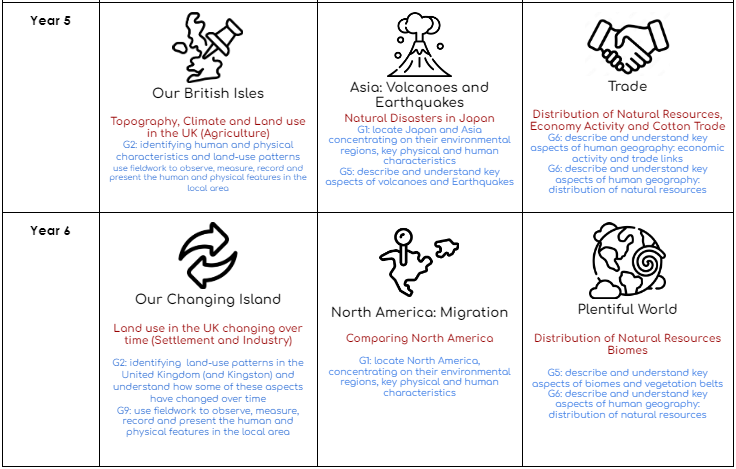Curriculum Overview
Fern Hill Geography Skills Progression
Rationale
Love of Learning
At Fern Hill, we seek to inspire in children a curiosity and fascination about the world and its people which will remain with them for the rest of their lives. Lessons have a child-led, enquiry based approach with plenty of opportunity for hands-on engagement and investigation of high-quality, authentic geographical sources.
Our curriculum is intended to equip pupils with the knowledge and skills to understand our ever-changing planet and aspire to responsibly contribute to its nurture and development sustainably.
Knowledge
Children develop their knowledge, skills and understanding as laid out in the national curriculum and beyond. There are three key themes run through the three geographical sequences each year group studies:
Our World, Let’s Unite: As a community school, it is important that our Geography curriculum ensures our pupils have a deep sense of identity, belonging and place within their own locality and country and therefore each year group studies an area in the United Kingdom that increases in distance and scale from the school year-on-year. To enhance this, all other localities studied start with pupils considering the relation to our school, our town and our country. Within each of ‘Our World, Let’s Unite’ themed unit, opportunities to develop fieldwork skills is prioritised and children are given plenty of opportunities to use these skills to be curious about the local area, such as enquiring about the human and physical geography of London, Kingston Market, Canbury Gardens and Ham as well as completing river studies at different parts of the River Thames.
Empathy for the Earth: At Fern Hill, developing empathetic, responsible and respectful citizens is at the heart of our school ethos and so the concepts of sustainability and conservation have been thoughtfully woven throughout learning sequences in each year group. It is important that our pupils understand our changing world and the role humans play in this so that our children understand the difference that they can make in looking after our planet.
The Natural World and Us: In each year group, children learn about key physical features and physical processes and the impact they have on humankind. Key concepts such as landforms and climate are explored and applied to each continent around the world to broaden children’s knowledge of the world.
Key concepts and skills are revisited and built upon through studies of different localities with a particular emphasis on developing pupils’ understanding and appreciation of sustainability, diversity and belonging.
Particular emphasis is placed upon developing the geographical vocabulary required to identify and name places and describe the human and physical processes at work there. A vocabulary progression is currently in development to embed this further. By the end of each of the Key Stages, key concepts, skills and vocabulary will have been revisited and built upon a number of times to ensure long-term learning. As children progress throughout the school, they develop a deep knowledge, understanding an appreciation of their local area and its place within the wider geographical context through outdoor learning and fieldwork.
Skills
Children are provided with opportunities to undertake geographical enquiry about different localities where they are encouraged to question where a place is, what is it like, and why, how and why is it changing, how does it compare with other places and how and why places might be connected. Geographical fieldwork skills are mapped out year-on-year progressively to provide opportunities for the children to build upon learning and become proficient in using maps and compasses, reading grid-references and using fieldwork skills to record, measure and present the human and physical geography of our local area.
Empathy
We aim for pupils to appreciate and respect the fragility of the world so that they learn to respect its beauty and grow into responsible citizens who care about protecting that fragility. Our children learn about the interdependence between human and physical geography and the impact humans can have on the environment. From this, they understand the crucial role they play in shaping what our changing world will be like in the future and question how they can influence change for the better.
Success
As a result of our curriculum, we aim to engender the excitement, creativity and critical thinking about the world that will equip young people to make their own way in it.
Implementation
Pupils engage in weekly humanities lessons and alternate between geography and history sequences of learning throughout the year with explicit links being made between the both and other subjects when relevant.
As a school with an international community, we believe that our pupils should be provided with the opportunity to learn about the whole world and as a result, we adopt a case study approach where pupils learn to understand the interdependence between man and nature by studying places, processes and people in each continent of the world.
We believe that learning geography through case studies or stories about the world helps our pupils to know more and remember more as they can connect and build upon knowledge as well as develop a deep understanding, respect and empathy for humankind and our planet. It also helps them better understand how they are connected to local and distant communities.
Whilst we aim to provide pupils with a breadth of knowledge by learning about many localities around in every continent of the world, we ensure depth of knowledge by revisiting key geographical concepts throughout each learning sequence.
Each sequence explores three 3 fundamental concepts:

In addition to this, other core concepts explored and revisited include:

Impact
Each geography sequence of learning ends with a final outcome task that allows children to apply their knowledge and demonstrate their understanding. This outcome is used as a summative assessment opportunity to show that children know more, remember and understand more. This is supplemented with half-term tracking against key knowledge and skills objectives to monitor progress and intervene when necessary to ensure all children make strong progress in geography.






 Inspiration
Inspiration 